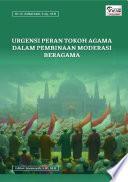
FIQIH MUAMALAH
Secara umum, fiqh dapat dipahami sebagai sebuah aturan main dalam kehidupan yang berporos pada Al-Qur’an dan al-Hadis. Meskipun sebagai sebuah formulasi hukum, ia merupakan produk ijtihad seorang mujtahid. Ia berisi kewajiban-kewajiban yang diyakini dari Tuhan untuk umat manusia agar manusia dapat berprilaku positif. Ketundukan manusia terhadap fiqh ini akan menjadi indikasi “kesalehan manusia” baik di hadapan Tuhannya maupun di tengah-tengah kehidupan manusia. Sebagai sebuah aturan, fiqh mengatur hubungan manusia dengan Tuhannya dan juga mengatur hubungan manusia dengan sesama bahkan dengan alam sekitarnya. Dua fungsi ini meniscayakan fiqh secara global terpetakan menjadi dua yaitu pertama fiqh Ibadah yang lebih menekankan pada aspek kesalehan individual, kedua fiqh muamalah yang lebih menekankan pada aspek kesalehan sosial. Pada macam pertama, fiqh mengantarkan manusia untuk dapat berhubungan baik dengan Sang Maha Pencipta. Sedangkan pada macam yang kedua mengantarkan manusia untuk menjalin hubungan baik kepada sesamanya. Fiqh muamalah yang mempunyai pengertian seperti ini di kalangan Ulama’ fiqh dikenal sebagai fiqh muamalah dalam pengertian luas yang di dalamnya mencakup fiqh mawaris, fiqh jinayah, fiqh siyasah dll. Sedangkan pada pengertian yang lebih sempit, fiqh Muamalah diterjemahkan sebagai peraturan yang menyangkut hubungan kebendaan. Dalam pengertian ini, ia hanya berisi pembicaraan tentang hak manusia dalam hubungannya satu sama lain, seperti akad, jual beli, riba, garar, maisir, jual beli salam dan istishna’, ijarah, qardh, hawalah, rahn, mudharabah, wadi’ah dan sebagainya. Oleh karena itu penulis menyusun buku ini karena mengingat pemahaman terhadap fiqh muamalah sangatlah penting bagi kehidupan manusia. Disamping itu juga fiqh muamalah sebagai sebuah disiplin ilmu akan terus berkembang mengikuti perkembangan manusia dan umat islam itu sendiri khususnya.
- ISBN 13 : 6237699449
- ISBN 10 : 9786237699446
- Judul : FIQIH MUAMALAH
- Pengarang : Muhammad Sauqi, S.H.I, M.H, S.H.I, M.H, S.H.I, M.H, S.H.I, M.H, S.H.I, M.H, S.H.I, M.H,
- Kategori : Architecture
- Penerbit : CV Pena Persada
- Bahasa : id
- Tahun : 2022
- Halaman : 186
- Google Book : https://play.google.com/store/books/details?id=A2CZEAAAQBAJ&source=gbs_api
-
Ketersediaan :
Secara umum, fiqh dapat dipahami sebagai sebuah aturan main dalam kehidupan yang berporos pada Al-Qur’an dan al-Hadis.









